71. Of the Peacock and the Crane
The peacock and the crane sup together. The peacock boasts himself, shows his tail; the crane confesses the peacock to be of most beautiful feathers, yet that he pierced the clouds with a bold flight, whilst the peacock scarcely flies over the houses.
Moral. No man should despise another: there is to every one his own portion; there is to every one his own virtue. He who wanteth thy virtue perhaps may have that which thou mayest want.
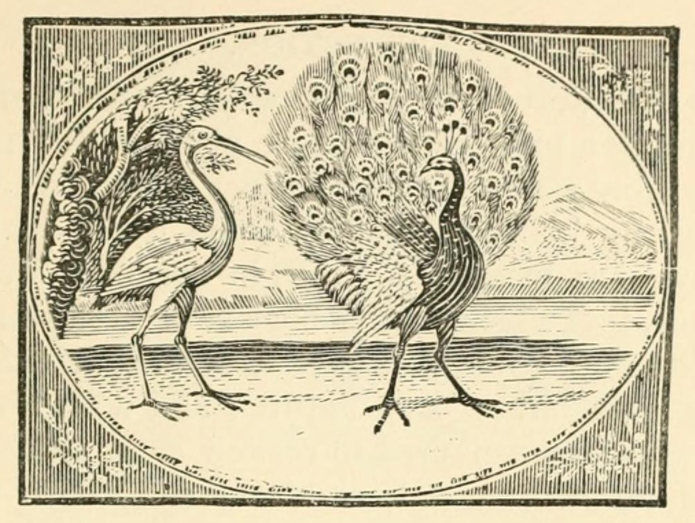
72. Of the Oak and the Reed
The oak, being broken by the stronger south wind, is thrown into the river, and, whilst she flows, by chance sticks by her boughs upon a reed. She wonders that a reed stood safe in so great a whirlwind. She answers that she was safe by her flexibility; that she yielded to Notus, to Boreas, to every blast, nor was it a wonder that the oak should fall, who desired not to yield but to resist.
Moral. Do not resist one more powerful, but overcome him by yielding and bearing.
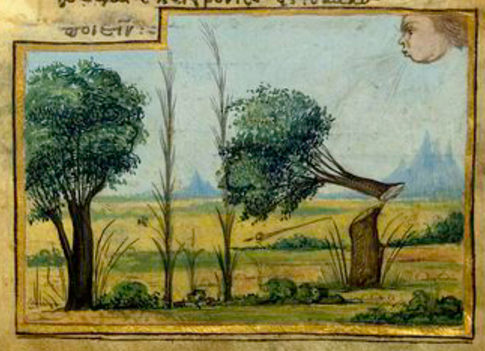
73. Of the Lion and the Hunter
The lion contends with the hunter; he prefers his strength to the strength of man. After long disputes, the hunter leads the lion to a tomb on which a lion was carved laying down his head on the lap of a man. The beast denies that to be enough proof, for, he says, that men carved what they would, but if lions were artificers, that the man now would be carved under the feet of the lion.
Moral. Every one, as much as he is able, both says and does that which he thinks to be profitable to his cause and party.
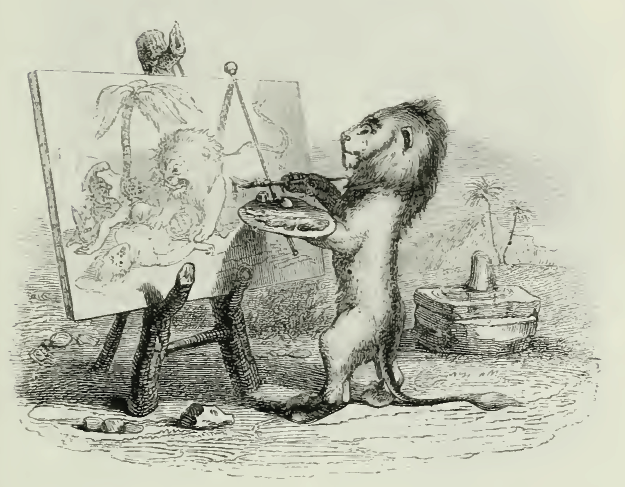
74. Of the Boy and the Thief
A boy sat weeping at a well. A thief asks the cause of his weeping; the boy says, the rope being broken, that an urn of gold had fallen into the waters. The man undresses himself, leaps into the well, seeks for it. The vessel not being found, he comes up, and there neither does he find the boy nor his own coat, for the boy, the coat being taken away, had fled.
Moral. Sometimes they are deceived who are wont to deceive.
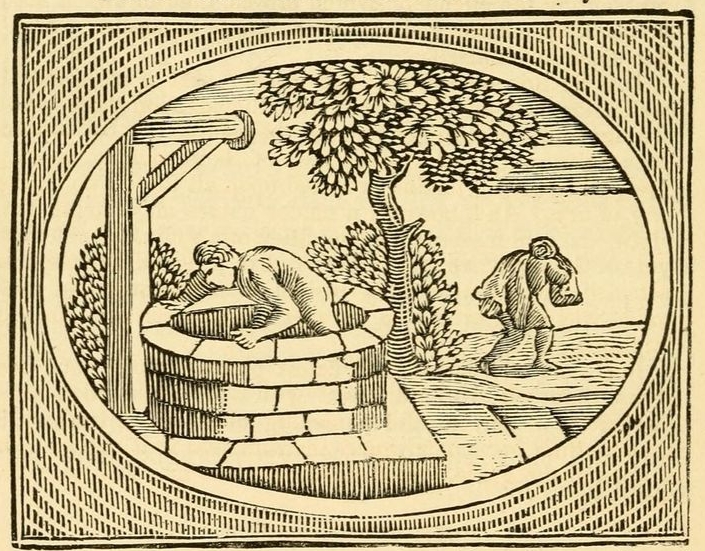
75. Of the Countryman and the Steer
A countryman had a steer impatient of every chain and yoke. The man, a little cunning, cuts off the horns of the beast, for he struck with his horns. Then he joins him not to the cart but to the plough, that he should not strike his master with his heels, as he was wont. He holds the plough, rejoicing that he had effected by industry that now he should be safe both from horns and from hoofs. But what happened? The bullock frequently resisting by scattering the sand fills the mouth and head of the countryman with it.
Moral. Some are so intractable that they cannot be managed by any art or counsel.
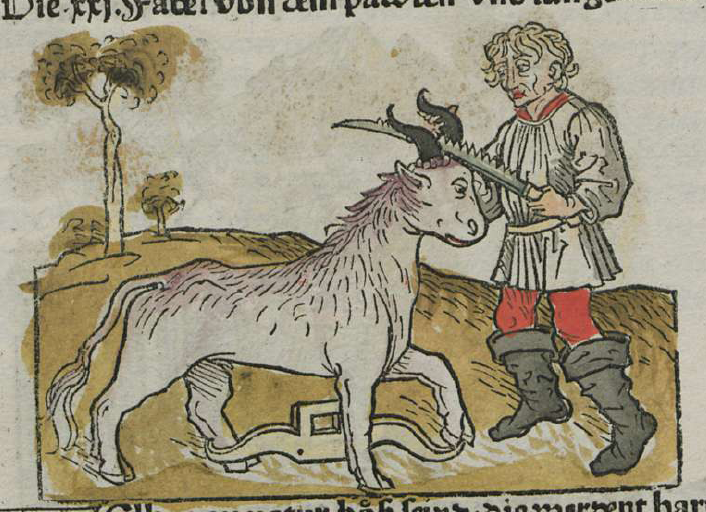
No comments:
Post a Comment
Comments are limited to Google accounts. You can also email me at laurakgibbs@gmail.com or find me at Twitter, @OnlineCrsLady.